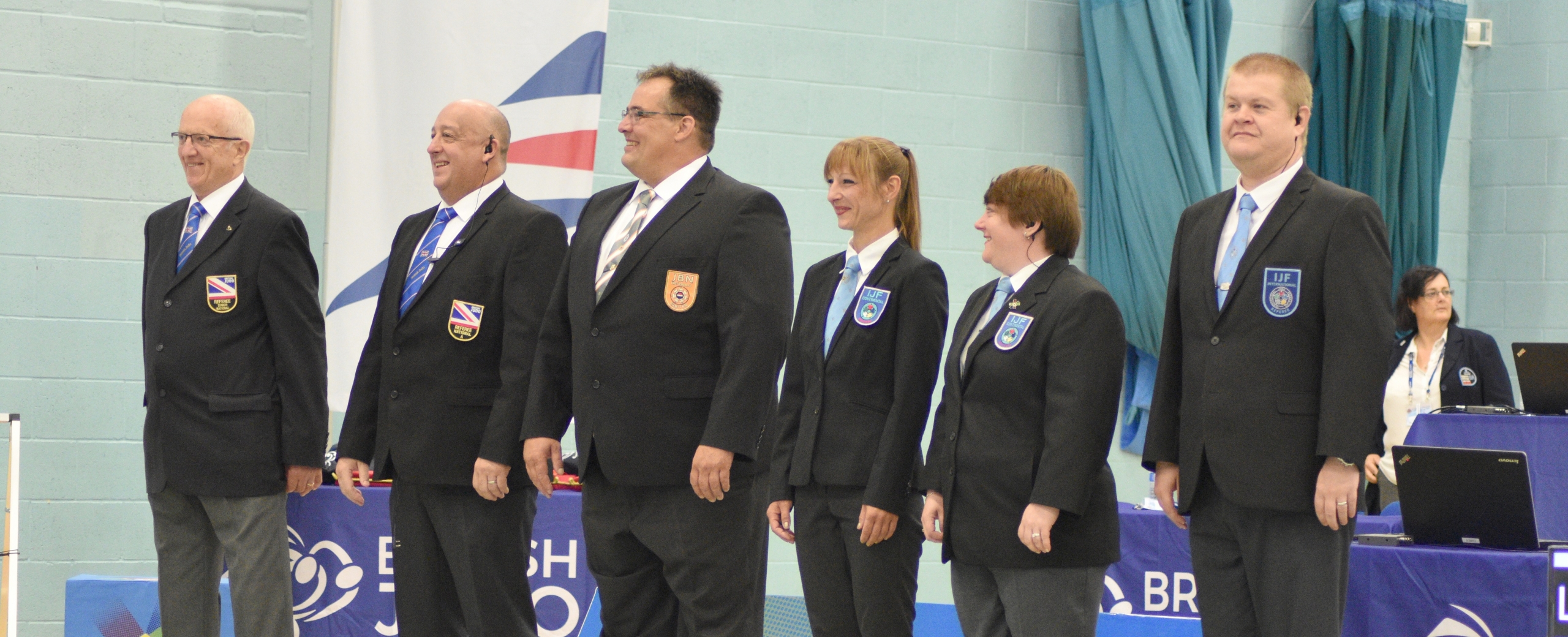Further to considerable negative feedback on the current Golden Score rules at development level across the country from Coaches, Referees and Technical Officials for some considerable time, it has been necessary to change the development level Golden Score rules.
The below rules will take effect from 01 January 2019.
The process has included the consultation of Coaches, Technical Officials and Referees.
Previous Problems:
The complexity of the current development level golden score rules is near unworkable in the environment we have due to there being too many different options which most don’t fully understand, or if they do, cannot recall which solution to use and when, therefore confusion for most. Furthermore, there are also I.T. difficulties with golden score rest periods and an overall feeling that rest periods are not necessary if golden scores are reasonably controlled. It is thought that athletes are in general deemed under more strain operating in “out of competition club environments” when practicing, they are used to fighting for more than 10 minutes in randori practice periods, so rest periods are not required.
Therefore, to provide a more consistent, easy to understand and apply rule that is applicable in the same way across all Technical Restriction matches, the new rule as detailed below will be implemented from 1st January 2019.
All other groups outside of technical restriction groups will operate under standard IJF golden score rules and with proper consistent application of the rules are thought to be satisfactory.
Rule Implementation
To reduce golden score occurrences, make events more productive, run more smoothly and less complicated, the following process will be implemented from 1st January 2019 in Technical Restriction matches only:
Benefits of this system:
• This system is clear to all and is consistent across all technically restricted categories, there is no confusion as to what applies.
• No athlete will need to fight more than 6 minutes (3+3) which should be well within their capability if entered into a competition.
• Draws do not exist in judo these days, this system eradicates draws and the potential of people perceiving a draw because of contest breaks etc.
Coach / Athlete / Table Officials / Referee Etc considerations:
For Table Officials, this simplifies all technical restrictions to an immediate maximum of 3 minutes golden score period, it is then up to the refereeing team to decide the result.
Referee Decision Making:
In the case where there are no judges, the referee will simply step forward and indicate the winner they have decided.
In the case where judges are in operation, the decision will be made as follows:
If both judges agree on the athlete who is to win, they will tell the referee over the radio connection by simply stating Blue or White, the referee must accept this decision and award the contest. If there is no radio connection, ONE judge will point to the winner, the referee will then immediately award the contest. If there are no radio’s and a split between the judges, ONE judge will indicate stalemate (old hiki-wake signal) and the referee must make
the casting decision and immediately award the contest.
At no point will there be any discussions or debate with the referee or the use of flags or the judges needing to stand up and make other signals.





